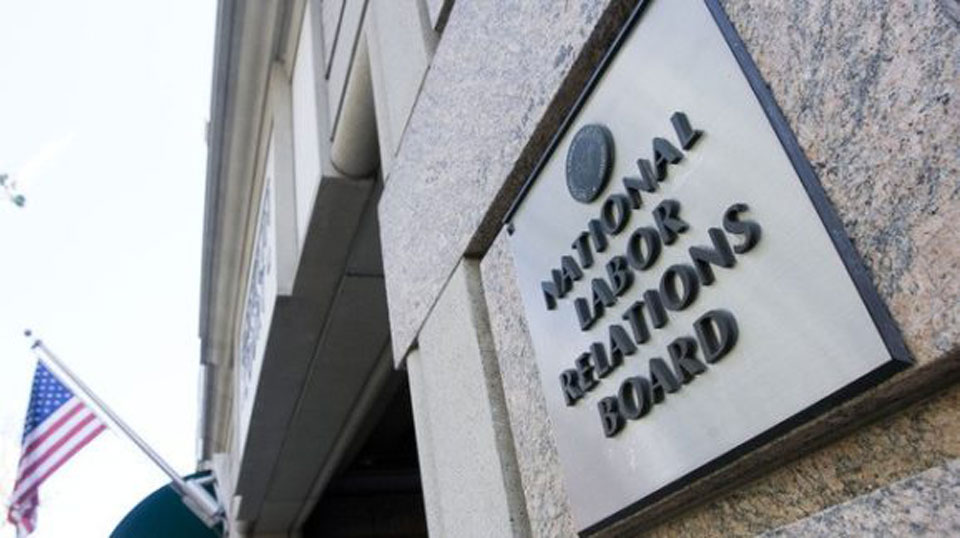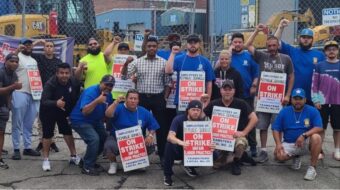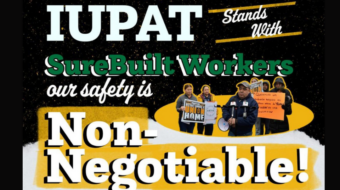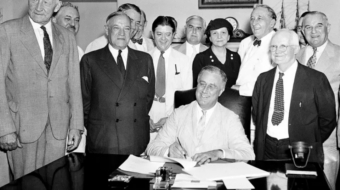
MT. CLEMENS, Mich.—The National Labor Relations Board has outlawed yet another employer tactic during a union organizing drive: Offering high severance pay to pro-union workers if they would, in plain English, quit, sit down and shut up.
Letting firms make such conditional offers would coerce workers into ceding their rights, and that’s illegal, the board majority ruled, 3-1, reversing two Trump-era decisions from 2020.
The case arose out of a successful 2019 organizing drive by Office and Professional Employees Local 40 at the McClaren-Macomb Hospital in the wealthy Detroit suburb of Mt. Clemens, Mich. The local had won the allegiance of the hospital’s nurses the year before.
In this drive, 320 support staffers–clerical associates, couriers, critical care techs, dispatchers, lab assistants, patient access reps, patient sitters, pharmacy techs, and several other groups of workers—voted 172-113 on Aug. 28, 2019, for Local 40.
But not before hospital bosses tried to derail the local’s campaign by offering high severance packages to 11 of them whom it furloughed—but only if they signed non-disclosure agreements and promised confidentiality, and not to say a word against the hospital. The offer included a warning: Break your promise and we’ll go to court for an injunction against you.
Making offers without discussing them with Local 40 broke labor law, Administrative Law Judge Robert Ringler ruled. Ringler also ruled the hospital broke the law by direct dealing with workers. On Feb. 21, 2023, the full NLRB agreed 4-0 with Ringler on both counts.
Where it split 3-1 on party lines was if the confidentiality agreements in exchange for high severance pay broke the law, too. Ringler said “no” and the board’s Republican, Marvin Kaplan, agreed. The Democratic-named NLRB Chair Lauren McFerran and members David Prouty and Gwynne Wilcox said “yes,” overturning the Trump-era NLRB rulings.
“The non-disparagement and confidentiality provisions of the severance agreement unlawfully restrain and coerce the furloughed employees in the exercise of their rights,” McFerran wrote in this case. Before the Trump-era rulings, which legalized the severance agreements, the board handled such disputes case by case. This board went further.
“Where an agreement unlawfully conditions receipt of severance benefits on the forfeiture of” workers’ legal rights, merely offering the agreement breaks labor law, the board said. “It has a reasonable tendency to interfere with or restrain the prospective exercise of” worker rights, both by the worker involved “and those who remain employed. Whether the employee accepts the agreement is immaterial,” the decision added.
Outlawing such tradeoffs is in the public interest, too, the majority said. “The ‘future rights of employees, as well as the rights of the public, may not be traded away’ in a manner which requires ‘forbearance from future charges and concerted activities,’” it declared.
People’s World has an enormous challenge ahead of it—to raise $200,000 from readers and supporters in 2023, including $125,000 during the Fund Drive, which runs from Feb. 1 to May 1.
Please donate to help People’s World reach our $200,000 goal. We appreciate whatever you can donate: $5, $10, $25, $50, $100, or more.











